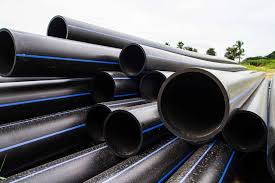Nov . 19, 2024 06:36 Back to list
HDPE Pipes for Agricultural Applications Benefits and Best Practices
The Benefits of HDPE Pipes for Agriculture
High-Density Polyethylene (HDPE) pipes have become a staple in the agricultural sector, offering numerous advantages over traditional materials like steel and PVC
. These pipes are specifically designed to withstand the rigors of agricultural applications, making them an ideal choice for irrigation, drainage, and water conveyance systems.One of the most significant benefits of HDPE pipes is their excellent resistance to corrosion and chemical damage. Unlike metal pipes that can rust over time or PVC pipes that may degrade in harsh environments, HDPE pipes maintain their integrity and performance under a variety of conditions. This durability is crucial for agricultural settings, where pipes are often exposed to fertilizers, pesticides, and other chemicals used in farming.
Moreover, HDPE pipes are lightweight and flexible, making them easier to handle and install compared to traditional piping materials. This flexibility allows for the natural expansion and contraction of the pipes due to temperature changes, reducing the likelihood of leaks and breaks. Farmers can save time and labor costs during installation, ultimately leading to increased efficiency in their operations.
hdpe pipe for agriculture product

Another notable advantage is the seamless construction of HDPE pipes, which eliminates the potential for leaks at joints. This feature is particularly beneficial in irrigation systems, where maintaining consistent water pressure is essential for crop health. The smooth interior of HDPE pipes also facilitates better flow rates, reducing the energy required for pumping water and leading to lower operational costs.
Additionally, HDPE pipes are environmentally friendly. They are recyclable and reduce the carbon footprint associated with agricultural water management. As sustainability becomes increasingly important in farming practices, using HDPE pipes aligns with eco-friendly initiatives while providing efficient solutions for water usage.
Furthermore, HDPE pipes are known for their long service life, often exceeding 50 years under normal working conditions. This longevity means that farmers can invest in a reliable system without the constant need for replacements, making HDPE a cost-effective solution in the long run. This reliability leads to less downtime, allowing for consistent agricultural operations, even during critical growing seasons.
In conclusion, HDPE pipes represent a significant advancement in agricultural infrastructure. Their durability, flexibility, and cost-effectiveness make them an ideal choice for irrigation and water management systems. As agriculture faces challenges such as climate change and resource scarcity, investing in HDPE piping systems could be a key strategy for sustainable and efficient farming practices moving forward.
-
High-Quality PVC Borehole Pipes Durable & Versatile Pipe Solutions
NewsJul.08,2025
-
High-Quality PVC Perforated Pipes for Efficient Drainage Leading Manufacturers & Factories
NewsJul.08,2025
-
High-Quality PVC Borehole Pipes Durable Pipe Solutions by Leading Manufacturer
NewsJul.08,2025
-
High-Quality PVC Borehole Pipes Reliable PVC Pipe Manufacturer Solutions
NewsJul.07,2025
-
High-Quality UPVC Drain Pipes Durable HDPE & Drain Pipe Solutions
NewsJul.07,2025
-
High-Quality Conduit Pipes & HDPE Conduit Fittings Manufacturer Reliable Factory Supply
NewsJul.06,2025

